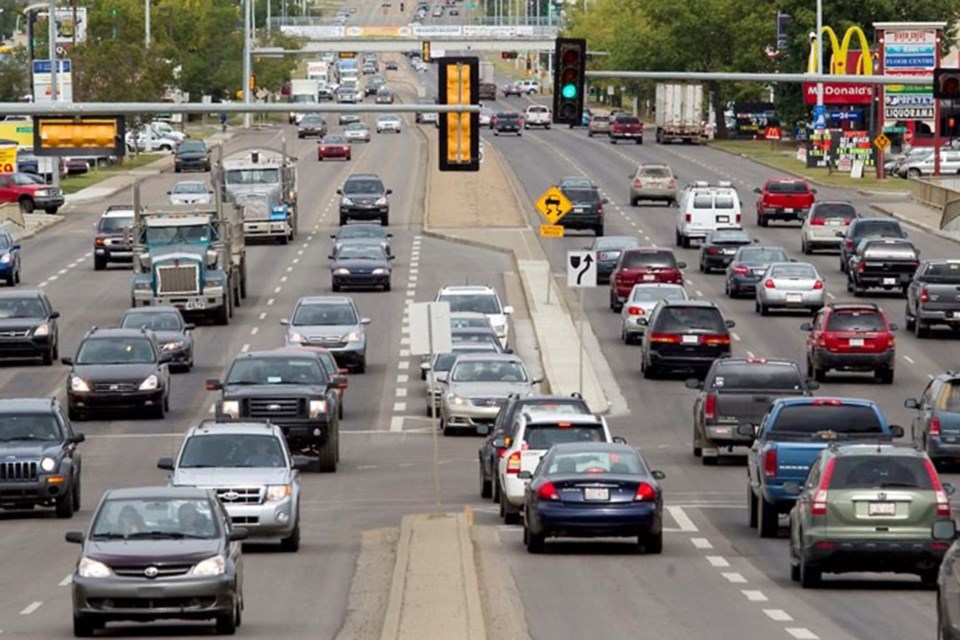The City of St. Albert has received provincial recognition for adaptive signal technology implemented on St. Albert Trail and Boudreau Road.
The 2022 Minister’s Awards for Transportation Innovation were announced during an annual transportation conference in Red Deer. St. Albert won in the category of operational innovation for advancing the adaptive signal technology, which allows for signal timings to change based on demand, rather than pre-set times. St. Albert previously received a transportation innovation award in 2018 for its electric bus fleet.
Dean Schick, St. Albert’s transportation manager, said this year’s award shows St. Albert is a front-runner when it comes to adaptive signal technology.
“St. Albert is one of the first within Canada to be successfully applying and integrating the adaptive signal operations into our network,” Schick said. “That alone is exciting.”
The City implemented the technology in stages over the span of several years, Schick said. Considering the technology began back in 2014, leading to upgrades in traffic signal controller cabinets; system changes to incorporate video detection for traffic; and the introduction of a fibre network to connect the traffic signal system and facilitate its monitoring. Schick said the City has also worked with its manufacturer to continue to monitor the system for additional improvements.
St. Albert’s 2018 Intelligent Transportation Systems (ITS) Strategy — which outlines plans to improve traffic conditions from 2019 to 2024 — also helped the City prioritize implementing the adaptive signal technology.
St. Albert Trail officially received the upgraded technology in 2019 from the south city limit to Mckenney Avenue, and Boudreau Road saw upgrades in 2021. Adding the adaptive signal technology isn't where the process is completed, however, Schick said.
“This hasn’t been a system that has been just applied once and turned on and left to operate on its own,” Schick explained, noting ongoing monitoring and improvements are integral to adaptive signal technology.
This means the technology requires a transition period after implementation, and has the potential to continually improve as time goes on.
“I believe our system will continue to advance … and even reduce that delay of responsiveness,” Schick said.
Schick said the city is already seeing benefits through reduced travel time down St. Albert Trail, with a 20- to 30-per-cent drive-time reduction during peak periods.
Mayor Cathy Heron said in a May 9 release from the City that the “state-of-the-art technology … helps to reduce congestion and traffic delays for our commuters.”
“The City believes in minimizing environmental impacts wherever possible and this showcases how we can increase the efficient and effective movement of people and goods in St. Albert and beyond,” Heron said in the release.
As far as where to implement the technology next, Schick said St. Albert will focus on high-demand roads, as opposed to more remote intersections where the technology wouldn’t be as advantageous. Some examples Schick gave for the areas the City is looking at included Bellerose Drive, and Giroux Road connecting to Ray Gibbon Drive.
Schick said St. Albert’s top focus is to deliver a high-quality transportation network.
“Our priority is to continue to deliver the safest and most efficient transportation possible with the tools that we have and with new forthcoming technologies,” Schick said.




